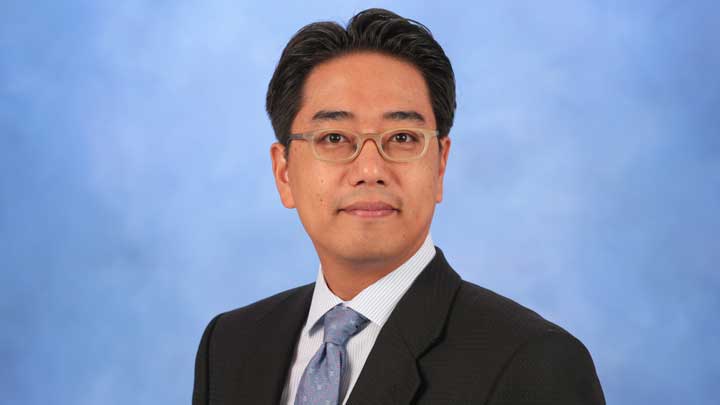
Dr. Kyung-Ho Roh’s research could have broad implications for immunotherapy and cancer treatment.
Michael Mercier | UAH
Research into engineering artificial organs that mimic the functions of human lymph nodes at The University of Alabama in Huntsville (UAH) has garnered one of its professors a $507,777 National Science Foundation (NSF) Faculty Early Career Development Program (CAREER) Award.
The award-winning research by Dr. Kyung-Ho Roh, a UAH assistant professor of chemical and materials engineering, could have broad implications for immunotherapy and cancer treatment. The NSF CAREER Award is the foundation's most prestigious honor for junior faculty members who exemplify the role of teacher-scholars through outstanding research, excellent education and the integration of education and research.
“When our body is infected with bacteria or viruses, some special immune cells are ‘primed’ within the lymph nodes to fight against these ‘bugs’,” Dr. Roh says. “More specifically, there are immune cells named B-cells that are responsible for producing a special set of molecules called antibodies that can recognize and bind to these ‘bugs’ so that our body can clear them out.”
The team at his Molecular and Cellular ImmunoEngineering Laboratory in the UAH Engineering Building is trying to achieve the priming of B-cells in an artificially created engineered system outside of the body.
“Once successful, this research can be useful for various critical biomedical applications,” Dr. Roh says. “First, we can use such artificially primed B-cells as living therapeutics that can provide the useful antibodies for an extended period within the patient’s body. Second, using the artificial lymph node, we can discover various antibody molecules that can recognize various pathogens or even our own cancers. Third, we can develop safer and cheaper vaccines. Lastly, the artificial system can be used as a critical research tool for studying the physiology of immune-cell related cancers such as lymphomas and leukemias.”
Initial development of the hydrogels and microfluidic devices that are the basic foundation of the research project is complete. Now the project is moving forward to use and combine the individual engineering platforms to realize the collective system that can mimic the functions of the lymph nodes.
“For this project, we need a very diverse set of expertise spanning from biomaterials engineering and microfluidics to cellular and molecular biology and immunology,” Dr. Roh says.
“For example, in order to mimic the mechanical properties of the physiological soft tissues we are developing novel biomaterials such as polymeric hydrogels,” he says. “To culture the B-cells within a controlled chemical environment, we develop and utilize microfluidic devices. For the proper characterizations of the resulting B-cells, various methodologies from cellular and molecular biology are routinely employed.”
In the lab, graduate students with diverse backgrounds are collaborating to tackle these challenging interdisciplinary research tasks. Dr. Roh’s team is also collaborating with local and international partners such as the Hudson Alpha Institute for Biotechnology and CFD Research Corp.
“In addition to the research activities mentioned above, I will continue to improve my role as an educator. I will develop interdisciplinary educational curricula and continue to nurture the collaborative local networks that can provide a sustainable education and research environment for ImmunoEngineering,” Dr. Roh says.
He wants to encourage the participation of the next generation of students from broader socioeconomic groups of North Alabama and to enhance public knowledge of ImmunoEngineering research activities and their applications.
“My primary goal as an educator is to train many undergraduate and graduate students in this highly multidisciplinary topic of ImmunoEngineering to meet the increasing societal demands for such critical skill sets.”
Dr. Roh says he received the news of his CAREER Award with a mixture of emotions.
“It was exciting because it assures me that I will be able to continue working on this very significant project and because this award in a way means that the research topics and ideas that we proposed to study are highly appreciated by the leaders in the field,” he says. “And the name of the award, CAREER, made me look back and be grateful to everyone who has enabled me to become what I am in my career.”